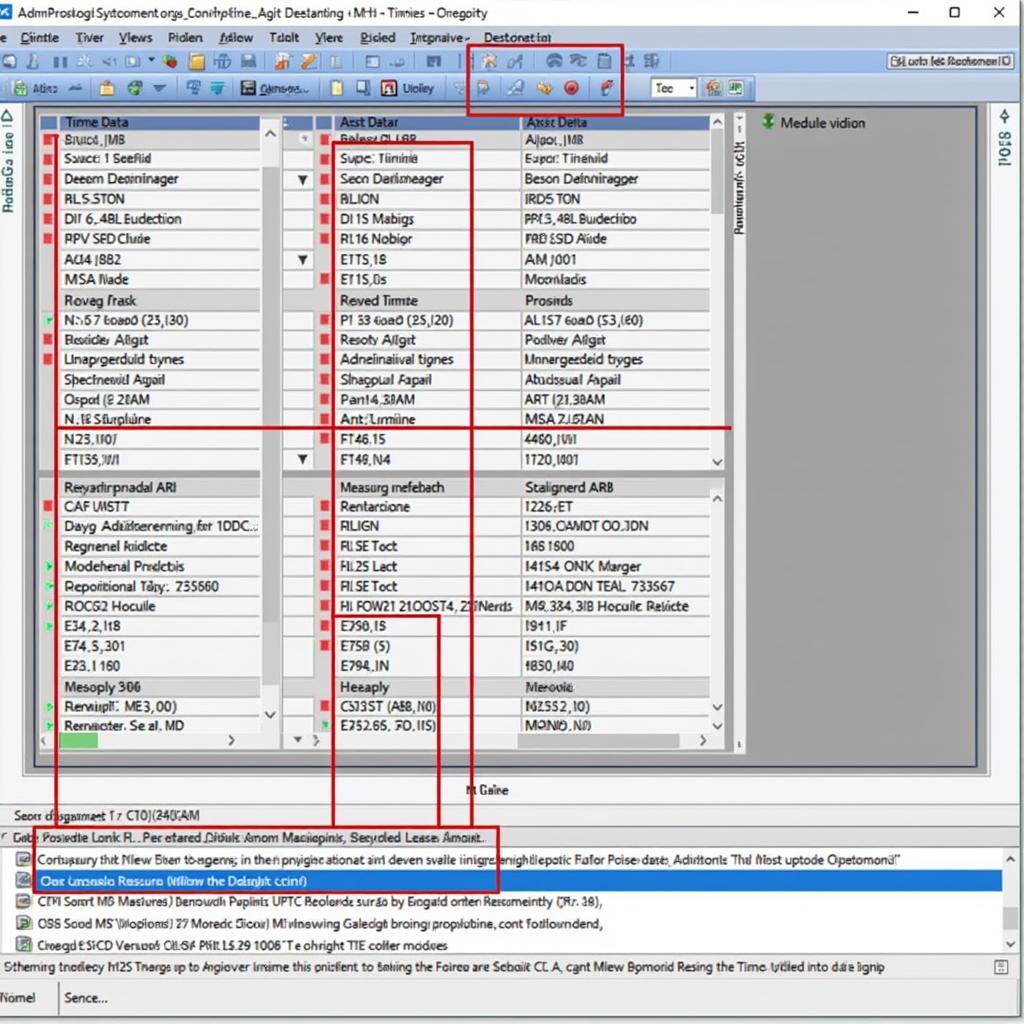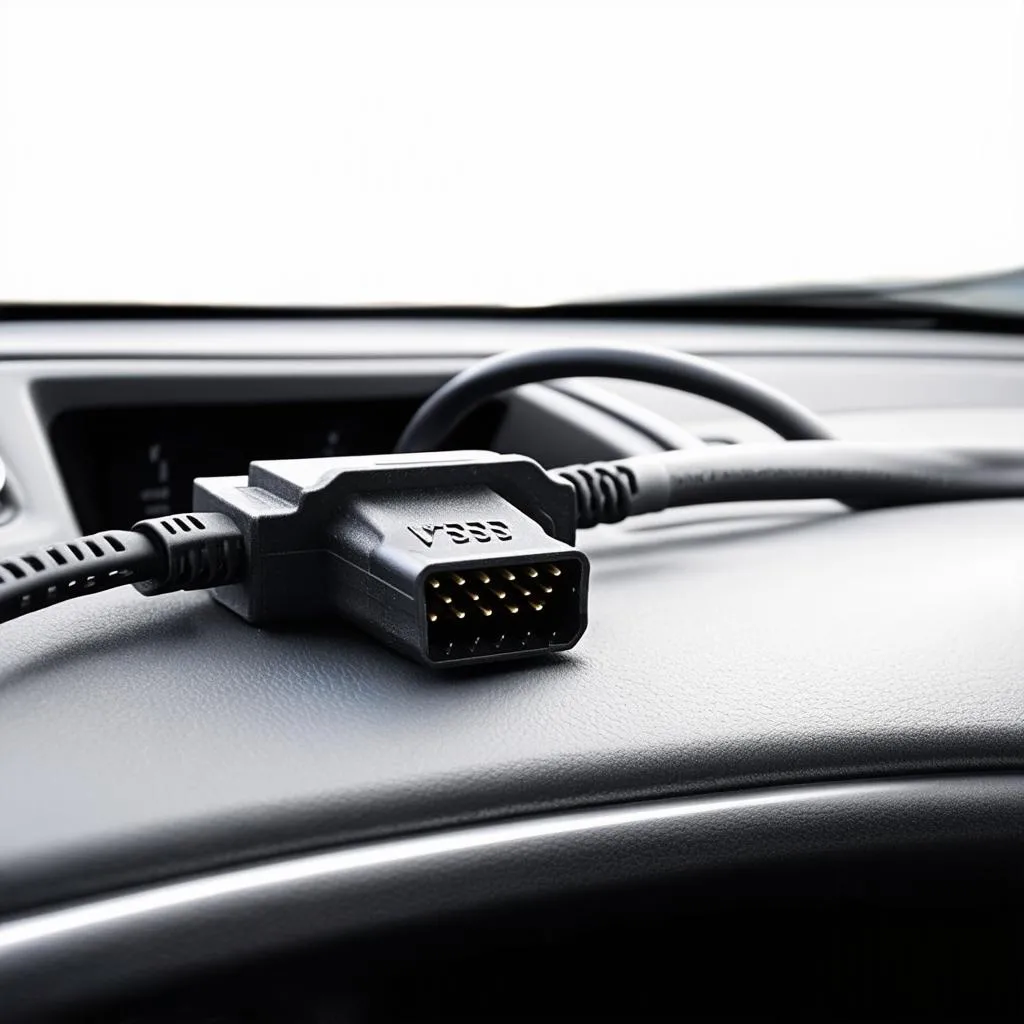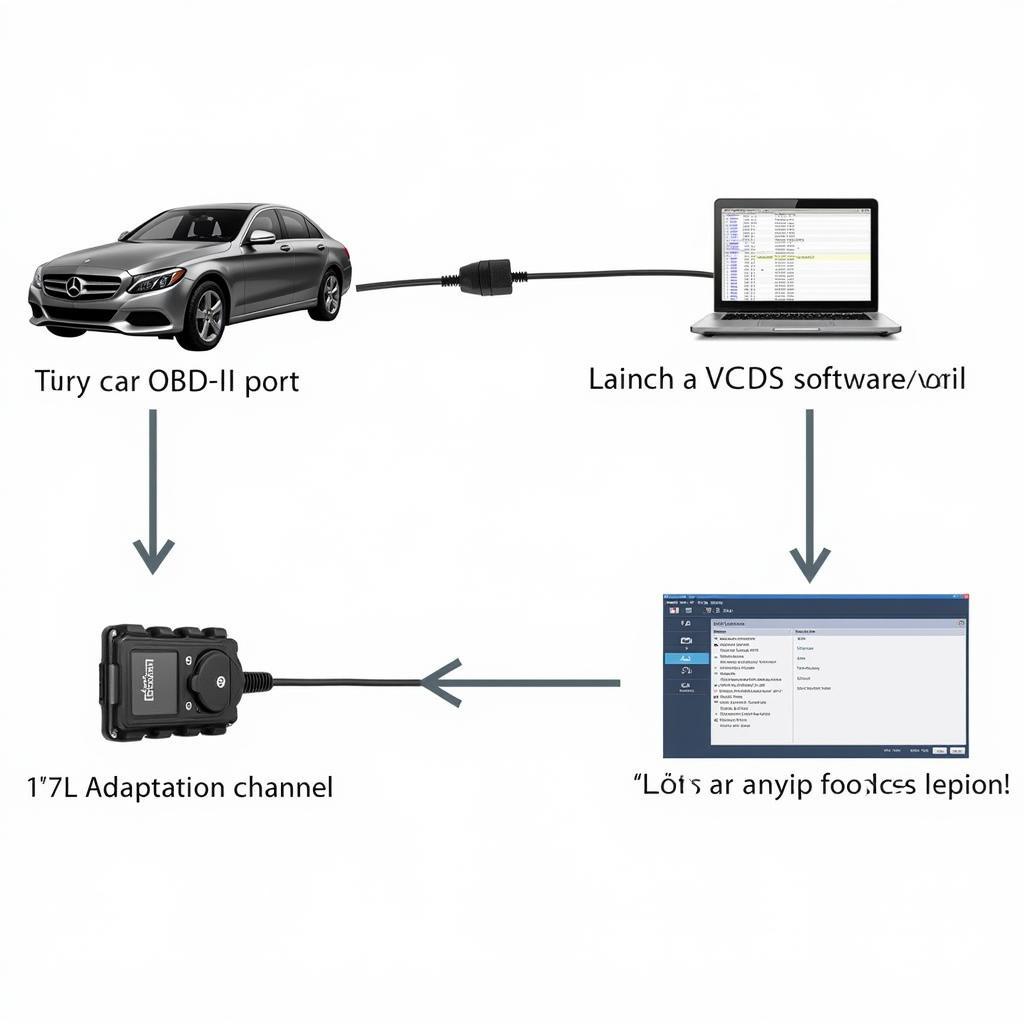TDI timing adjustment using VCDS is a crucial aspect of maintaining optimal performance and longevity in your TDI engine. This guide dives deep into the world of TDI timing, exploring its intricacies and demonstrating how VCDS, a powerful diagnostic tool, can be used for precise adjustments. We’ll cover various TDI engines, common issues, and best practices for using VCDS to achieve perfect timing.
Understanding TDI Timing and its Importance
TDI (Turbocharged Direct Injection) engines are renowned for their fuel efficiency and torque. Accurate timing is paramount for these engines to function as designed. Incorrect timing can lead to reduced power, poor fuel economy, excessive smoke, and even catastrophic engine damage. By understanding how timing affects your TDI engine, you can diagnose and rectify issues efficiently, ensuring peak performance and preventing costly repairs.
Why is Precise Timing Crucial for TDIs?
Precise timing ensures that the fuel is injected at the optimal moment in the combustion cycle. This precise injection timing maximizes power output, minimizes emissions, and promotes efficient fuel combustion. Even slight deviations from the ideal timing can negatively impact performance and longevity.
Common Symptoms of Incorrect TDI Timing
Several symptoms can indicate incorrect TDI timing, including:
- Difficulty starting
- Rough idling
- Loss of power
- Excessive black smoke
- Increased fuel consumption
- Knocking or pinging sounds from the engine
If you experience any of these symptoms, checking your TDI timing with VCDS is a crucial first step in diagnosing the problem.
Using VCDS for TDI Timing Adjustment
VCDS (VAG-COM Diagnostic System) is an invaluable tool for diagnosing and adjusting TDI timing. It allows you to access the engine control unit (ECU) and monitor various parameters, including injection timing. With VCDS, you can pinpoint timing issues and make precise adjustments to restore optimal performance.
Accessing the Timing Settings with VCDS
Connecting VCDS to your vehicle is straightforward. After connecting the interface to your car’s OBD-II port and launching the software, select the appropriate engine control module. Within the module, navigate to the “Advanced Measuring Values” or “Measuring Blocks” section. Here, you’ll find specific measuring blocks related to injection timing, typically identified by group numbers.
Interpreting the Timing Values in VCDS
The displayed timing values represent the relationship between the crankshaft and camshaft position, and the injection timing. These values are typically expressed in degrees before or after top dead center (BTDC or ATDC). Comparing these values to the manufacturer’s specifications will determine if adjustments are necessary.
 Adjusting TDI Timing with VCDS Software
Adjusting TDI Timing with VCDS Software
Specific TDI Engine Timing Procedures
Different TDI engines have specific timing procedures. While the general principles remain the same, it’s essential to consult the factory service manual for your specific engine code. This will provide the correct measuring block groups and specified timing values.
For example, adjusting the timing on a 1.9 TDI PD engine differs from adjusting a 2.5 TDI R5 engine. The measuring block groups and specified values will vary.
You might find our articles on specific TDI engine timing procedures helpful, like our guides on 1.9 tdi camshaft timing vcds or vw t4 2.5 tdi injection pump timing vcds.
Common Timing Issues and Troubleshooting
Several factors can contribute to incorrect TDI timing, including:
- Worn timing belt
- Damaged camshaft or crankshaft sensors
- Faulty injection pump
- Issues with the ECU
Using VCDS, you can isolate the cause of the problem and implement the appropriate solution. For instance, checking the vcds timing belt check can help identify a worn timing belt.
Best Practices for TDI Timing Adjustment with VCDS
When adjusting TDI timing with VCDS, follow these best practices:
- Always consult the factory service manual for your specific engine.
- Ensure the engine is at operating temperature before making adjustments.
- Make small incremental adjustments and monitor the results.
- Double-check your work and verify the timing is within specifications.
- If you are unsure about any aspect of the procedure, seek professional assistance.
Knowing how to check things like vcds fuel pressure measuring block can be helpful in conjunction with timing adjustments.
Conclusion
Accurate TDI timing is essential for optimal engine performance and longevity. By utilizing VCDS, you can diagnose and adjust timing issues effectively, ensuring your TDI engine runs smoothly and efficiently. Remember to always consult the factory service manual and adhere to best practices for accurate and safe adjustments. Understanding how to check vcds cam timing can greatly improve your TDI engine maintenance.
FAQs
-
What is TDI timing? TDI timing refers to the precise synchronization of fuel injection with the engine’s combustion cycle.
-
Why is VCDS important for TDI timing? VCDS allows for precise monitoring and adjustment of injection timing.
-
What are the symptoms of incorrect TDI timing? Symptoms include rough idling, loss of power, and excessive smoke.
-
How do I adjust TDI timing with VCDS? Connect VCDS, access the engine control module, and adjust the relevant measuring blocks.
-
Where can I find specific timing procedures for my engine? Consult the factory service manual for your specific TDI engine code.
-
What are common causes of incorrect TDI timing? Worn timing belts, faulty sensors, and injection pump issues.
-
What are some best practices for TDI timing adjustment? Consult the service manual, make small adjustments, and double-check your work.
Need assistance with TDI timing or other diagnostic services? Contact us via Whatsapp: +1 (641) 206-8880, Email: CARDIAGTECH[email protected] or visit us at 276 Reock St, City of Orange, NJ 07050, United States. Our team is available 24/7 to provide expert support.


